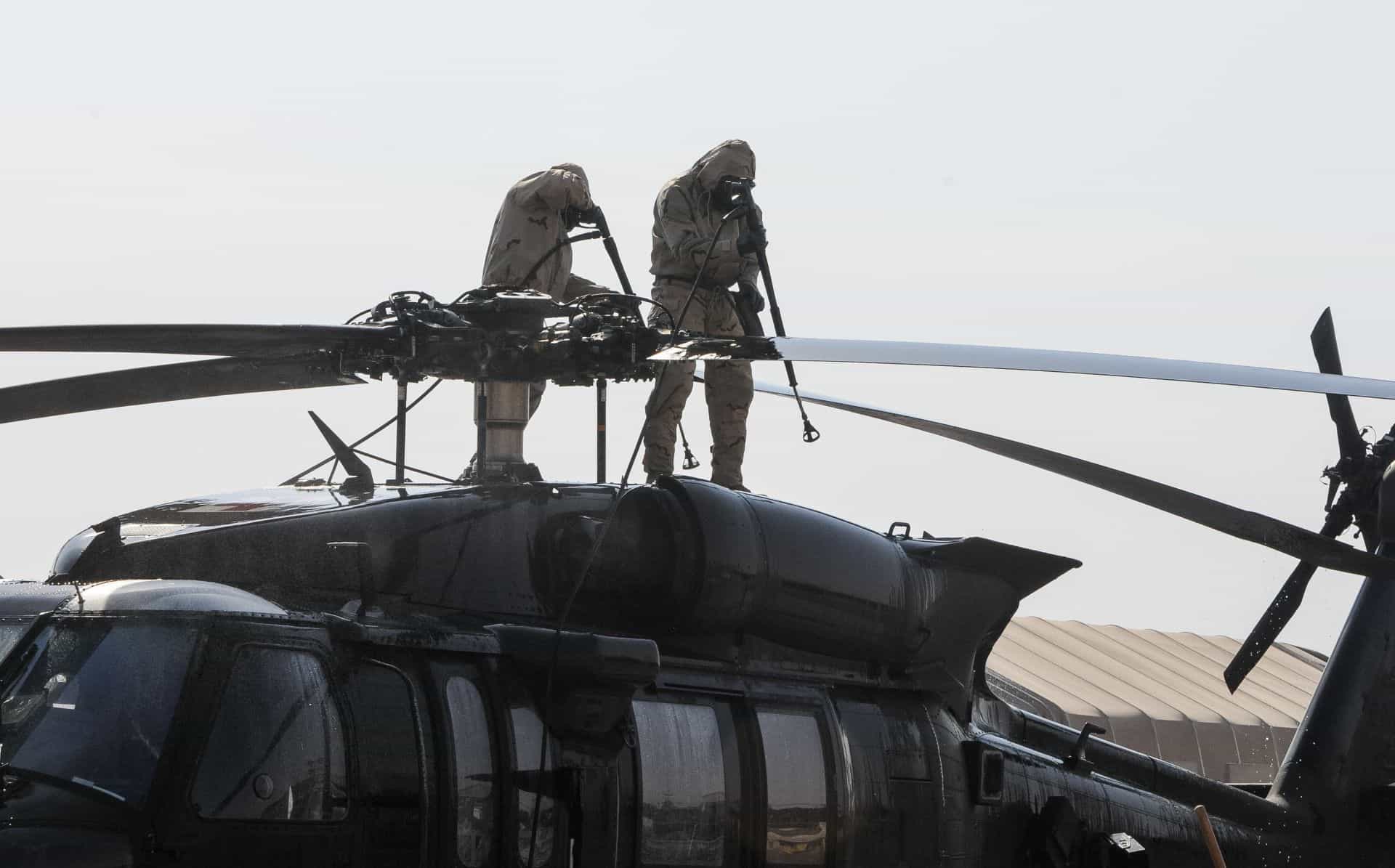CAMP BUEHRING, Kuwait: Soldiers from the 29th Combat Aviation Brigade’s Task Force Wraith completed combined training with the 208th Chemical, Biological, Radiological and Nuclear Company and Camp Buehring’s emergency services at Udairi Landing Zone, Kuwait, Oct. 24, 2017 to increase their capability to respond to a chemical attack.
The training event was a simulated chemical attack that required an aeromedical evacuation of casualties followed by the decontamination of Soldiers and Task Force Wraith’s UH-60L MEDEVAC helicopter.
“This was the first time that we have ever done any real CBRN training with aircraft,” said 2nd Lt. Mitchell Hoh, battalion CBRN officer from Task Force Wraith’s 1-147th Assault Helicopter Battalion.
Furthermore, this training provided an opportunity for Soldiers from Task Force Wraith to learn from the technical expertise of Soldiers from the 208th CBRN Company and Camp Buehring’s emergency management personnel.
“Anytime that we work with other organizations we build capability,” said Lt. Col. Scott Bush, the commander of the 1-147th Assault Helicopter Battalion, Task Force Wraith. “We can learn a lot from each other.”
The 208th CBRN Company taught the air crew how to decontaminate their aircraft, said 208th CBRN Company 1st Sgt. Billy Heatherly.
“Conducting an operation of this complexity relies upon having the expertise and experience of a unit who is solely dedicated to this mission,” said Capt. Larry Halvorson, the 29th Combat Aviation Brigade’s CBRN officer.
The exercise also required coordination and actual training with other emergency management organizations at Camp Buehring, including the fire department.
“This was a great exercise that brought a lot of entities together,” said Bush.
This training was a chance for both Soldiers from Task Force Wraith and the 208th CBRN Company to build solid relationships and further the trust between the two organizations, said Hoh.
Although the training exercise itself occurred over the course of one morning, it will have a far-reaching impact on CAB elements.
“The implications of this training will go beyond what is learned on Udairi Landing Zone and will help shape our tactical standard operating procedures as we continue to provide support within our area of operations,” said Halvorson.










